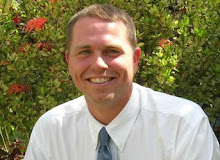One of my first small assignments this summer was to create a leadership philosophy based on a book we read called the Tao of Leadership by John Heider. Now for those of you who know me, you know that I am not a Tao kind of guy but I thought it was quite an interesting process stepping outside my comfort zone and looking at some new leadership principles. I thought it might be fun to share so let me know what you think.
Tao means how: how things happen, how things work. By knowing Tao, I know how things happen. (Heider, pg. 1)
As an educational leader, I must pay attention to the processes that occur on a daily basis which allow for our school to function effectively. These processes are a means to an end and in order to ensure that we have the correct how in place, I believe that we must first focus on the why. This is my first Tao, Center and Ground.
Being centered means having the ability to recover one’s balance, even in the midst of action. A centered person is not subject to passing whims or sudden excitements. Being grounded means being down to earth, having gravity or weight. I know where I stand, and what I stand for; that is ground. The centered and grounded leader has stability and a sense of self. (Heider, pg. 51)
In an educational setting, our center and ground is our mission statement. The mission statement of a school provides a direction or purpose to the daily endeavors of a school community. It allows for a diverse group of individuals to work together towards a common purpose. It provides a lens through which our decisions can be viewed and filtered. Our mission is what a group can accomplish and as a leader within the group, I must understand how I can help various members focus and accomplish our goal.
The mission is the why but principals must understand the how and use their position within a community to influence others. Unfortunately, there are many layers within my community and my reach is limited. Therefore, it is important that I understand and follow the mission and core values of my school. The stronger my belief, the greater ripples I can create to extend my reach through my community.
Your behavior influences others through a ripple effect. A ripple effect works because everyone influences everyone else. Powerful people are powerful influences. Remember that your influence begins with you and ripples outward. So be sure that your influence is both potent and wholesome. All growth spreads outward from a fertile and potent nucleus. You are a nucleus. (Heider, pg. 107)
My thoughts are only as good as my deeds. Leaders must understand that they are held to a high standard and their actions must reflect integrity, honesty and acceptance in order to ensure that these important ideals spread throughout the community. Regardless of the ideas that may be shared through words, my actions for better or worse will be replicated by many. Fortunately, I can improve the actions of others by first improving my own.
As a principal, there are many ways in which I must act to ensure that our collaborative mission is achieved. It is important that I recognize that it is impossible to lead if I am not able to react to different situations in different ways. At various times and with various people, I must be a warrior, a healer and act as Tao.
As a warrior, the leader acts with power and decision. Most of the time, however, the leader acts as a healer and is an open, receptive, and nourishing state. This mixture of doing and being, of warrior and healer, is both productive and potent. There is a third aspect of leadership: Tao. Periodically, the leader withdraws from the group and returns to silence. A brilliant warrior does not make every possible intervention. A knowing healer takes time to nourish self as well as others. The leader who knows when to listen, when to act, and when to withdraw can work effectively with nearly anyone. (Heider, pg. 55)
All situations are different. A leader must recognize the subtle complexities and engage with group members in various ways to ensure that the group is working towards their mission. An effective leader is able to be in front, amongst or absent when needed to facilitate the process of the group. A successful leader understands that they cannot serve the same role within all groups and moves through the process to ensure goals are accomplished. The ability to be a dynamic part of the process allows for potent leadership.
A potent leader is one who is proactive and part of the processes that occur within the life of a school. By being present, a leader is able to work with group members as issues arise. The presence of a leader allows for situations to be dealt with as they occur rather than as a reaction to past events.
Potent leadership is a matter of being aware of what is happening in the group and acting accordingly. Leaders who lose touch with what is happening cannot act spontaneously, so they try to do what they think is right. If that fails, they often try coercion. But the wise leader who loses sense of the immediacy become quiet and lets all effort go until a sense of clarity and consciousness returns. (Heider, pg. 75)
When a leader misses the opportunity to work in the present, they are forced to solve a problem that was created by their lack of awareness. These solutions are preventative measures, which disrupt the processes that naturally occur. In order for our school to flow it is more effective for me to be present rather than preventative. A present leader will ensure that a school maintains its direction and purpose through difficult situations by remaining focused on the mission of the school.






